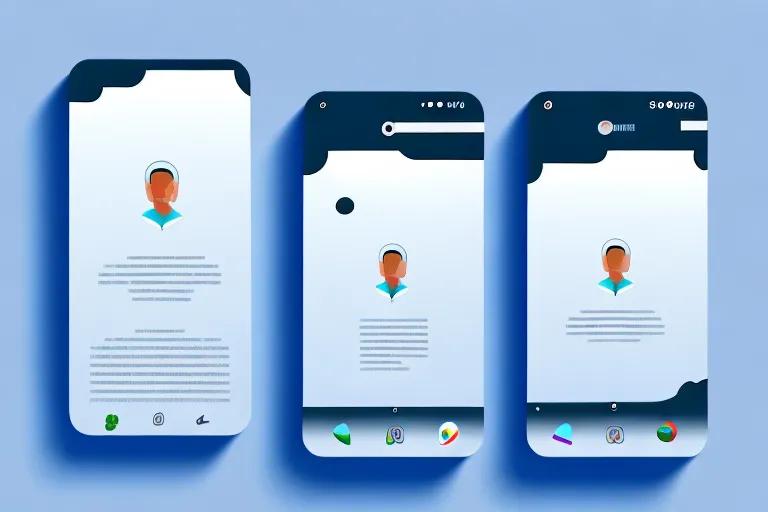The messaging landscape has dramatically evolved in the recent past, with the introduction of Rich Communication Service message (RCS message). However, questions linger on whether RCS will eventually replace Short Message Service (SMS) or not. This article takes a closer look at RCS and SMS and compares their features to establish whether RCS is a more superior messaging service.
Understanding RCS and SMS
In today's world, communication has become an integral part of our lives. With the advent of technology, the way we communicate with each other has also undergone a significant transformation. From sending letters to making phone calls, and now, sending text messages, we have come a long way. Two of the most popular messaging services used today are SMS and RCS business messaging. Let's take a closer look at these two services.
What is SMS?
Short Message Service (SMS) is a messaging service that uses the Global System for Mobile Communications (GSM) network to send and receive text messages. It is the standard messaging service supported by all mobile carriers globally and has been in existence since the 1990s. SMS is a simple and straightforward service that allows users to send short text messages to each other, typically limited to 160 characters.While SMS has been around for a while and is widely used, it has its limitations. SMS messages are limited to text only, which means that users cannot send multimedia content such as images, videos, or audio files. Additionally, SMS does not provide read receipts, typing indicators, or group messaging features, which are commonly found in messaging apps.
What is RCS?
RCS stands for Rich Communication Services, and it is a messaging protocol that enhances SMS by providing multimedia support, read receipts, typing indicators, and group messaging features. Essentially, RCS seeks to offer a messaging experience similar to that provided by messaging apps but using the existing carrier network infrastructure rather than requiring a separate app to be installed.RCS is a significant improvement over SMS, as it allows users to send multimedia content such as images, videos, and audio files. It also provides read receipts, which allows users to know when their messages have been read, and typing indicators, which lets users know when the other person is typing a response. Group messaging is another feature offered by RCS, which allows users to send messages to multiple people at once.One of the most significant advantages of RCS is that it does not require users to install a separate app to use the service. Instead, it is built into the messaging app that comes pre-installed on most Android devices. This means that users can enjoy all the benefits of RCS without having to download and install a separate app.In conclusion, while SMS is a simple and straightforward messaging service that has been around for a long time, RCS is a significant improvement over SMS, offering users a more robust messaging experience. With RCS, users can send multimedia content, get read receipts, typing indicators, and group messaging features, all without having to install a separate app.
The Evolution of Messaging Services
The History of SMS
The first SMS was sent in December 1992, and it revolutionized the way people communicate. SMS, or Short Message Service, allowed people to send short text messages to each other using their mobile phones. By the turn of the millennium, SMS was the dominant messaging service worldwide, with an estimated 250 billion messages sent annually. People could finally communicate with each other in a quick and easy way, without having to make a phone call or send an email.However, SMS has its limitations. One of the biggest limitations is message length. SMS messages are limited to 160 characters, which can be frustrating when trying to convey a longer message. Another limitation of SMS is the inability to send multimedia content. While SMS was great for sending quick messages, it couldn't provide the rich media messaging experience that people were starting to demand.
The Emergence of RCS
To address these limitations, RCS development began in 2007. RCS, or Rich Communication Services, was designed to improve SMS capabilities by allowing for longer messages and the ability to send multimedia content. However, it was slow to take off, with limited carrier support and device compatibility. This changed in 2018 with the launch of Google's RCS Chat.RCS Chat is a messaging service that uses the RCS protocol to provide the experince in rich text messaging service. It allows users to send messages that are longer than 160 characters, and it supports multimedia content such as pictures, videos, and audio messages. In addition, RCS Chat provides read receipts, typing indicators, and group messaging capabilities.The launch of Google's RCS Chat led to an increased adoption of RCS by mobile carriers and device manufacturers. Today, many mobile carriers support RCS, and many Android devices come with RCS pre-installed. RCS is quickly becoming the new standard for messaging services, providing a rich and engaging experience that SMS simply can't match.
Comparing RCS and SMS Features
When it comes to messaging, there are many different options available to users. Two of the most popular messaging services are RCS and SMS. While both offer similar functionality, there are also some key differences between the two services that are worth exploring.
Message Length and Content
One of the limitations of SMS is its message length, which is restricted to 160 characters per message. This can be frustrating for users who want to communicate more complex ideas or share longer messages. In contrast, RCS supports lengthier messages and allows multimedia content, including photos, videos, and audio files, to be sent and received. This means that users can share more detailed and engaging content with each other, making conversations more interesting and dynamic.For example, imagine that you are trying to plan a surprise party for a friend. With SMS, you might struggle to convey all of the necessary details in a single message. However, with RCS, you could send a longer message that includes photos of potential venues, videos of party ideas, and audio files of potential songs to play. This would make it much easier to plan the perfect party.
Group Messaging and Multimedia Support
Another advantage of RCS over SMS is its support for group messaging. With RCS, users can communicate with multiple people in one conversation thread. This can be especially useful for coordinating group events or discussing shared interests with a group of friends. Additionally, RCS allows for the sending of multimedia content, which is not supported by SMS. This means that users can share photos, videos, and other types of media with each other, making conversations more engaging and interactive.For example, imagine that you are part of a group chat with some friends who share your love of photography. With RCS, you could share photos that you have taken, as well as videos and audio files that showcase your skills. This would allow you to connect with your friends in a more meaningful way, and share your passion for photography with others.
Read Receipts and Typing Indicators
RCS offers read receipts and typing indicators, allowing users to see when a message has been delivered, read, or when someone is typing a response. This can be helpful for users who want to know when their messages have been received and read, or who want to know when someone is actively engaged in a conversation. SMS does not offer this feature, which can make it harder to know when someone is available to chat or when a message has been received.For example, imagine that you are trying to plan a surprise party for a friend, and you need to know when everyone has received the invitation. With RCS, you could see when each person has read the message, and follow up with anyone who hasn't responded yet. This would make it much easier to keep track of who is coming to the party.
Security and Encryption
Finally, one of the most important differences between RCS and SMS is their approach to security and encryption. RCS supports end-to-end encryption, which ensures that messages are secure and private. This means that only the sender and receiver can read the messages, and that they cannot be intercepted or accessed by third parties. In contrast, SMS messages are not encrypted, and the content can potentially be accessed by third parties.For example, imagine that you are discussing sensitive information with a friend, such as your bank account details or your medical history. With RCS, you can be confident that your messages are secure and private, and that no one else can access them. This can give you peace of mind and help you to communicate more freely and openly with others.
Adoption of RCS by Mobile Carriers and Device Manufacturers
Carrier Support for RCS
Mobile carriers worldwide are supporting RCS. Verizon, Sprint, and AT&T in the US have all adopted RCS, with other carriers globally also on board.
Device Compatibility and Integration
Most Android devices support RCS messaging natively, while other smartphones require the installation of the Android Messages app to use RCS features. However, RCS is not widely supported on iOS devices, limiting its user base.
The Impact of Messaging Apps on RCS and SMS
Popular Messaging Apps and Their Features
Currently, messaging apps such as WhatsApp, Facebook Messenger, and WeChat dominate the messaging landscape due to their ability to provide messaging services across diverse platforms. These apps support multimedia messaging, encryption, and a range of other features not available on RCS and SMS.
How Messaging Apps Affect RCS Adoption
Messaging apps have lowered the barrier to entry for users and increased competition for both RCS and SMS. Therefore, it is essential to monitor the trend of messaging app adoption and analyze how this affects the uptake of RCS in the future.
Conclusion
In conclusion, while SMS is still the most widely used messaging service globally, RCS messaging service is increasingly gaining traction and could eventually replace SMS. RCS, with its enhanced features, provides a more comprehensive messaging experience compared to SMS. However, the adoption of RCS remains limited due to varying carrier support, device compatibility, and messaging app competition. Nonetheless, with more mobile carriers and device manufacturers adopting RCS, it is only a matter of time before RCS becomes the dominant messaging service worldwide.

